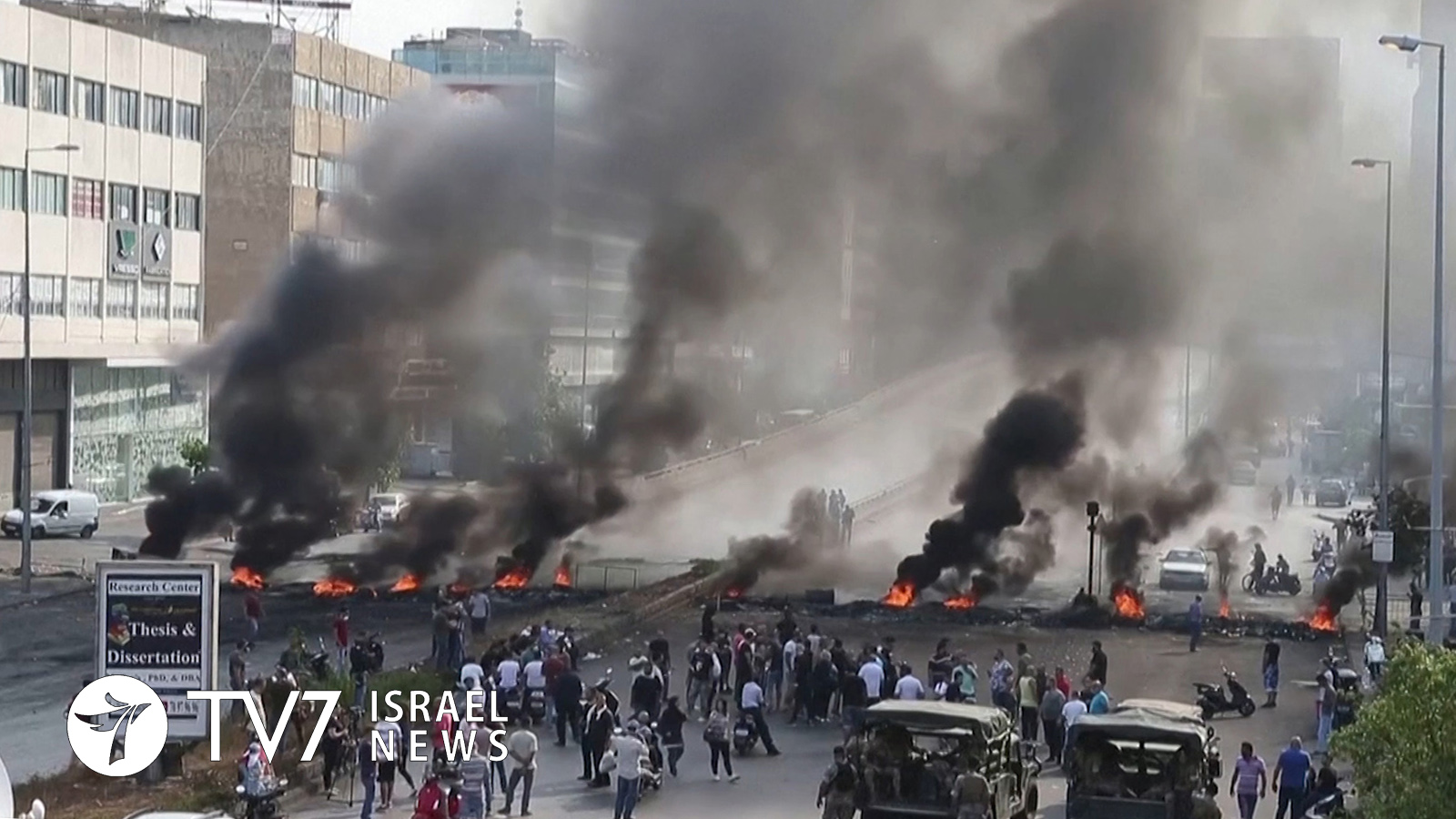Tens of thousands of protesters took to the streets of Lebanon for the twelfth consecutive day, expressing outrage against their leaders over allegations of corruption and staggering nationwide unemployment. While the demonstrations have until now been peaceful, the Lebanese Security Forces have struggled to prevent ongoing attempts to block roadways across the country.
One participant identified as Mohammed Kleit was cited by Reuters as saying, “It’s enough how much taxes we have been paying for 30 years without having any services from all the successive government. Now, they want to add more taxes and fees, the people’s economic situation does not stand anymore, we are doing some kind of civil disobedience by blocking roads and protesting across Lebanon.” Ramzi Bou Ziki told the news agency, “I have five children; I am hungry, and I own a business. So where are they leading us still? To steal? To immigrate from this country? No, we are staying in this country despite them and we will keep protecting this country with our eyes.”
Lebanese President Michel Aoun, who is the leader of the country’s Maronite Christian minority, said in a televised address to the nation that he is ready for dialogue with protesters to find the best solution to save the country from financial collapse, suggesting a possible reshuffling of the government is on the table. “My call to demonstrators: I am ready to meet your representatives that carry your concerns to listen to your specific demands,” said Aoun, promising “You will hear from us about our fears over financial collapse,” and “We will discuss what we can do together to achieve your objectives without causing collapse and chaos.”
Despite the presidential pledge to enact reform and other unprecedented measures to appease the public’s demand, calls for the government to resign remain a constant rallying cry.
Iran’s proxy Hezbollah, which is part of Beirut’s governing coalition, has responded by launching numerous pro-government counter protests. This, despite urging by the organization’s Secretary General Hassan Nasrallah for followers to stay away from the general protests after previous interaction in Beirut lead to clashes between the sides. The Hezbollah boss claimed that data acquired by his organization in recent days “tell that now the situation in Lebanon has become the target of political instrumentalization internationally and regionally, that involves internal actors,” in apparent reference to the United States and Israel. He went on to express his “fear that there might be someone who wants to take Lebanon and create social, security and political tensions that would lead to civil war.”
